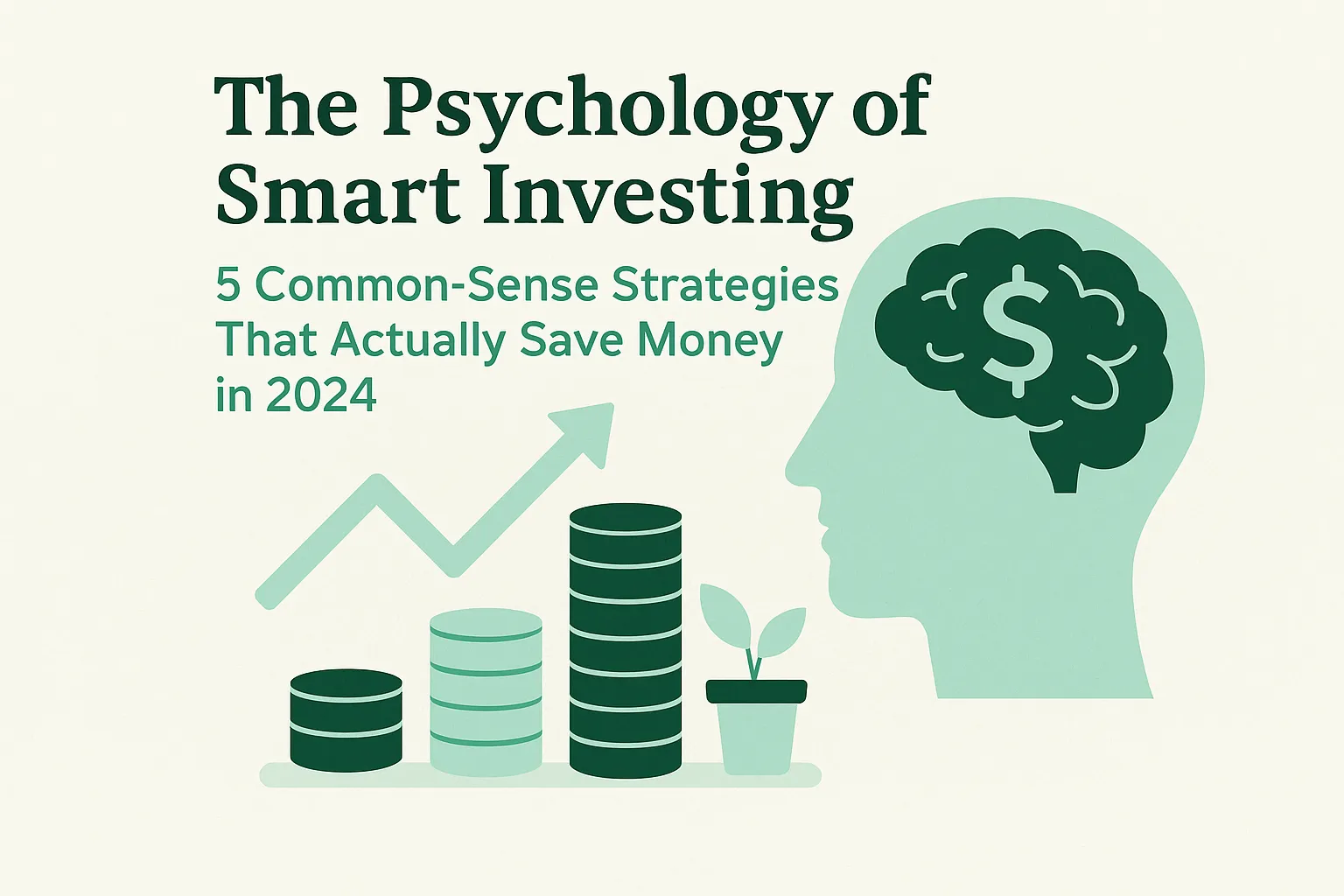The Psychology of Smart Investing: 5 Common-Sense Strategies That Actually Save Money in 2024

In today's fast-paced financial landscape, where market fluctuations and economic uncertainties dominate headlines, the art of smart investing remains a timeless strategy for building wealth. With 2024 on the horizon, investors are increasingly seeking reliable methods to protect and grow their assets. The challenge, however, lies in navigating a world where information is abundant but often conflicting. Enter the psychology of smart investing—a blend of common-sense strategies and behavioral insights that can help you save money and make informed decisions. By understanding the psychological tendencies that influence financial behavior, you can sidestep costly mistakes and capitalize on opportunities. In this blog post, we explore five strategies that leverage the principles of psychology to enhance your investing prowess in 2024.
Understanding the Behavioral Biases in Investing
Investors are often their own worst enemies. Behavioral biases, such as overconfidence and loss aversion, can cloud judgment and lead to suboptimal decisions. According to Nobel laureate Richard Thaler, understanding these biases is crucial for making better financial choices. One common bias is the tendency to follow the crowd, known as herd behavior. This can lead to buying high and selling low, as investors react to market hype rather than fundamentals. To counteract this, cultivate a mindset of independent thinking. Analyze data critically and make decisions based on your financial goals, not the latest market trends.
Embracing Diversification for Risk Management
Diversification remains a cornerstone of smart investing. By spreading your investments across various asset classes, you mitigate the risk associated with any single investment. This strategy is particularly relevant in 2024, as geopolitical tensions and economic shifts create volatility in global markets. Consider a balanced mix of stocks, bonds, and alternative investments. A diversified portfolio not only cushions against market downturns but also positions you to benefit from different economic cycles. As Warren Buffett famously said, "Diversification is protection against ignorance." It is a pragmatic approach to managing uncertainty. [IMAGE: A pie chart showing a diversified investment portfolio]
The Power of Long-Term Thinking
In an age of instant gratification, the ability to think long-term is a valuable asset. Successful investors understand the importance of patience and the compounding effect of time. Instead of reacting to short-term market fluctuations, focus on your long-term financial objectives. The story of Amazon's rise is a testament to the power of long-term thinking. Investors who held onto Amazon stocks through its early volatility have reaped substantial rewards. The key takeaway? Stay the course, even when the market tests your resolve.
Leveraging Technology for Informed Decisions
Technology has revolutionized the way we invest. From robo-advisors to sophisticated analytics tools, technology empowers investors with data-driven insights. In 2024, leveraging these tools can enhance your decision-making process. Use financial apps to track your portfolio, analyze market trends, and receive timely alerts. However, remember that technology is a tool, not a crutch. Combine digital insights with your own analysis and intuition. As Benjamin Graham, the father of value investing, advised, "The investor's chief problem—and even his worst enemy—is likely to be himself." [IMAGE: An investor using a mobile app to track investments]
Practicing Emotional Discipline
Emotional discipline is a hallmark of smart investing. Market volatility can trigger fear and panic, leading to impulsive decisions. By cultivating emotional resilience, you can navigate turbulent times with confidence. Develop a clear investment plan and stick to it, even when emotions run high. Regularly review your goals and adjust your portfolio as needed, but avoid making drastic changes based on short-term market movements. Remember, successful investing is not about avoiding risk entirely but managing it wisely.
- Set realistic financial goals.
- Establish a routine for reviewing your investments.
- Practice mindfulness to stay centered during market fluctuations.
Conclusion
The psychology of smart investing offers valuable insights into human behavior and decision-making. By understanding and applying these strategies, you can enhance your investment approach and save money in 2024. Embrace diversification, leverage technology, and practice emotional discipline to navigate the complexities of the financial markets. As you embark on your investment journey, remember that success is a marathon, not a sprint. Stay informed, stay disciplined, and most importantly, stay true to your financial goals. The road to financial prosperity is paved with informed choices and a resilient mindset.



